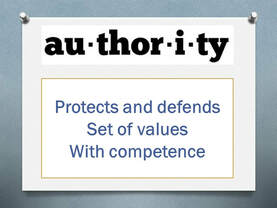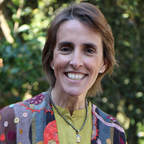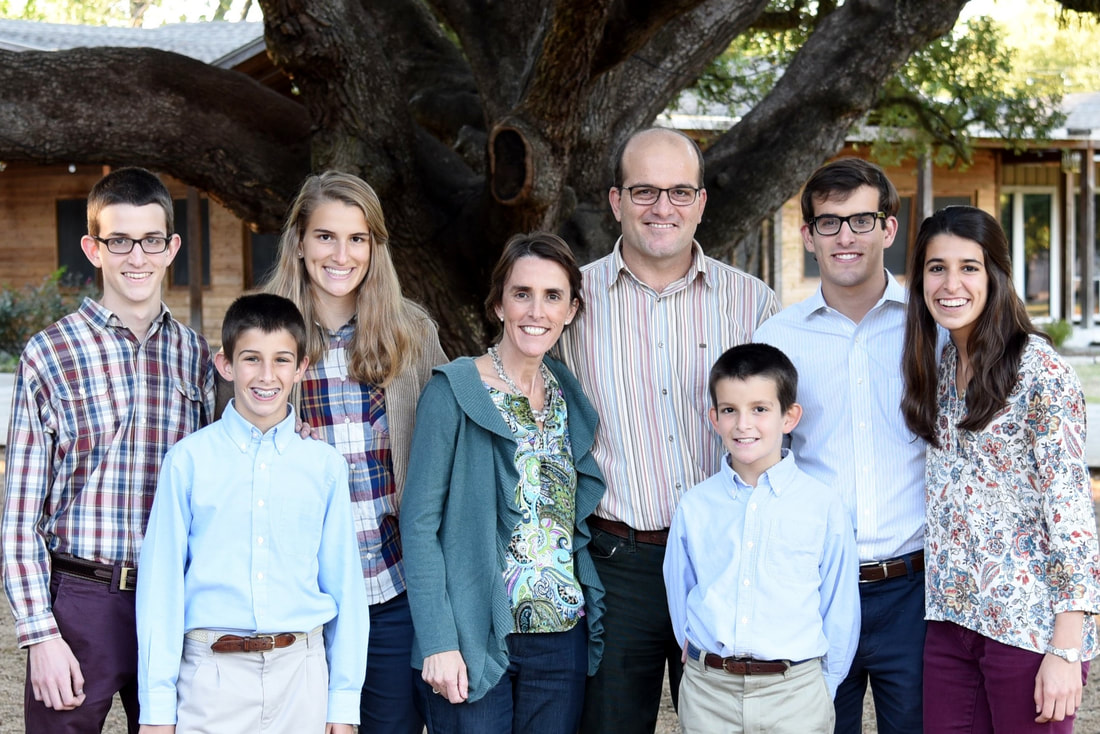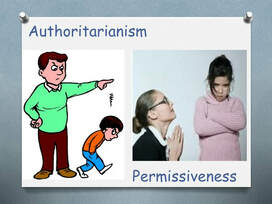 Before defining what Authority is, I will refer to the two extremes that we can easily fall into: PERMISSIVENESS and AUTHORITARIANISM. Sometimes, we as parents, are afraid to say no to our children, when they ask for the latest iPhone or Nike shoes. In fact, many parents have a fear of disciplining, perhaps because they themselves have suffered the negative consequences that can come from imposing things on children. They are afraid, for example, that their kids wouldn’t love them anymore, or that peace at home will be lost, or that their children will reject something that is good in itself. So they adopt a permissive attitude as an easier way out of a challenging situation. But the exercise of authority should never be confused with simply imposing our will on another person, or making sure we are obeyed at any cost, that would be authoritarianism. It is characterized by the expression “because I said so.” I know that the exercise of parental authority isn't always easy, that's why I'm writing about it on this post. Following the British educator, David Isaacs, we understand that a person has authority when he or she protects and defends a set of values with competence. He has authority over me if I appreciate those same values and recognize his or her competence in that subject. If we choose for example the value: Health, we go to a doctor that has studied medicine and he defends the value of health with competence and he is an "authority" for me in this area. The authority that we have with our children lies precisely in the values that we protect and defend with competence. So, it is good to reflect what are the values that you are effectively living? And if your actions, your decisions are in accord with the end that you have set for you and your children as I mentioned in the part 1 of this series. If we live the virtues of generosity, understanding and sincerity we have authority with our children and we guide them in this direction. To educate is this process of guiding toward an authorship: that is, that our children become capable of protecting and defending some values with competence. 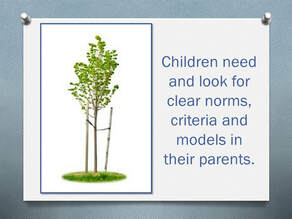 In fact, etymologically, the word “authority" comes from the Latin verb augere, which means “to make grow," “to develop.“ (Auctoritas: power and right to command. Auctor: the one who exercises this power and right.) When you grow a tree, it tends to grow upward, looking for light and becoming part of the environment. But in the process of growing, it will need, during a certain period of time, to be held by some stakes so that it grows straight and its roots settle in the ground, reaching its maximum potential. The tree that grows crooked will never straighten its trunk. The exercise of authority by us, the parents, is like the rod, the picket, placed by the newly planted tree that helps it grow straight. We are the rods that help prevent detours o correct them if they appear. We are the support and the hope of our children while we teach them how to support themselves. Children need and look for clear
norms, criteria and models in their parents.
1 Comment
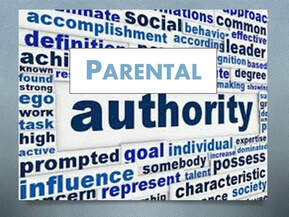 Parental authority is always a tricky subject because parents are always afraid of falling into one of the two extremes: Authoritarianism or Permissiveness. But before delving into the topic of parental authority I want to share two points that I think are very important when educating our children. 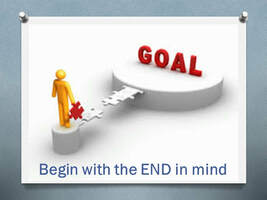 When we educate our children, we have to Begin with the END in mind, as Stephen Covey, the motivational speaker that died on July 2012, wrote in his book The 7 Habits of highly effective families. So, what kind of end do we have in mind for our family?
I think we can all agree that that every human being yearns for happiness. I am sure that there is no one that can honestly declare that he wants to be miserable or unhappy. What is Happiness? A classic definition of happiness states that a person is happy if she achieves to develop everything that she is, according to human nature. Reason, allows the person to discover what is good and with her Will she acts in accordance to what was seen as good and achieves a peaceful enjoyment of life. As you will see, the correct use of Parental Authority will help us achieve this end. 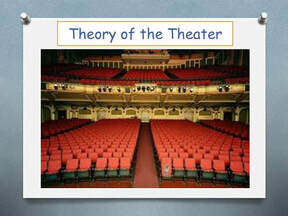 2. The other point to have in mind is that we are not raising kids but future adults. This is called Preventive Education, which is educating for the future. So to prevent is to learn how to educate better, without improvising. The theory of the Theater reminds us that the brain is a like an empty theater. Every chair is waiting for an idea, a concept, a good habit, etc. How easy is to sit something good when the chair is empty! And how difficult it is to sit when the chair is occupied! But if a bad habits sits down first, it is more difficult to change. But don’t get discouraged! No matter what the ages of your children are, it is never too late to start! But the sooner you start, the better it will be! Educating in the future is to get there early, so to speak, with the good habit. To prevent is to know how to appreciate a good friend, before having a bad one. It is to know the effects of drugs, before they offer it to you. To prevent is to know about the beauty of your body, before you are asked to have sex. It is to know that you don’t have to hang around evil, but to go in the other direction. To prevent is to know that you have to study to get good grades, before regretting later on. It is to know that the internet, video games, etc. create an addiction… To prevent is to know...
Stay tuned for part 2 of the series...
|
AuthorPilar Caranti holds a Masters in Psychology from the Catholic University of Argentina. She is a Certified Professional Life Coach. Family topics and the education of children are her passion. She has given many lectures on parenting topics like: forming the will of our children, authority, education of leisure, pornography, etc. Archives
June 2019
|
